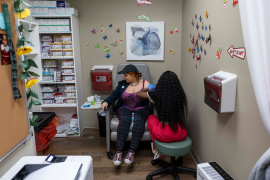New York City, March 11, 2005—Many of the millions of consumers who enroll in discount medical cards may lack accurate information about what these cards are, have trouble getting the care they need at the promised discounts, and have problems finding providers that participate in the discount programs, says a new study released today. The study, authored by researchers at Georgetown University's Health Policy Institute and funded by The Commonwealth Fund, highlights serious problems with how some discount medical cards are being marketed and sold, and more importantly, problems with how such cards work. The study urges states to intervene more aggressively to protect consumers, and the National Association of Insurance Commissioners (NAIC) is seeking to find ways to better address reported consumer problems. "There is a regulatory vacuum that exists now for discount medical cards," says lead co-author Mila Kofman, J.D., an assistant research professor at Georgetown University's Health Policy Institute. "Consumers are buying these cards with the expectation of getting a discount, which may never materialize," she adds. "Uninsured individuals, worried about incurring medical bills they cannot pay, are turning to discount cards to provide at least some financial protection," says Commonwealth Fund President Karen Davis. "Some even buy cards in the mistaken belief that they are insurance plans—in part because of misleading marketing. Consumer protections are needed to halt the serious abuses and unethical practices uncovered in the study," she adds. More and more working Americans are relying on discount medical cards, which for a monthly fee promise a discount from all types of providers, including specialists and hospitals. According to Fortune Small Business, many small business owners are dropping health insurance benefits and instead buying discount cards for their employees. The card promises discounts on different types of services, including doctors visits, laboratory work, and surgical procedures. Companies offering discount cards do not pay medical claims of enrollees; the company negotiates discounts with provider networks or providers directly. Enrollees are responsible for paying for the bill and must pay in full either prior to or at the time of the service in order to receive the discounted rate. To test how well discount medical cards work, the authors identified, enrolled and tested cards sold nationally in August, September, and October 2004. The authors tested five of the nine cards available in the Washington D.C. metro area by undergoing the application process, seeking health care services from participating providers, and then canceling the cards. With few exceptions, the researchers identified several problems with the way these cards are being sold to consumers and with the way these cards work, including:
- High pressure sales tactics;
- Promoters making misleading or inaccurate statements about the product;
- Exaggerated claims of savings;
- Problems finding participating doctors; and
- Doctors failing to give card holders a discount.
- Be licensed with their state insurance department;
- Have contracts directly with providers, not just provider networks;
- Provide clear, comprehensible consumer disclosures on marketing materials; and
- Give consumers an opportunity to have a "free-look" period so they can cancel more easily if they were dissatisfied.


